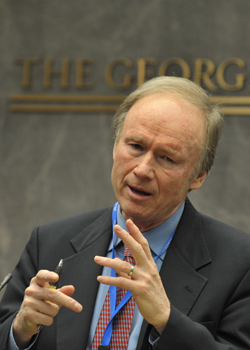Visiting Assistant Professor Todd Haugh has posted a new article to SSRN titled Sentencing the Why of White Collar Crime (82 Fordham L. Rev., forthcoming).
Professor Haugh will present the article twice this month: once at The John Marshall Law School’s Chicago Junior Faculty Workshop on April 5 and again at the University of St. Thomas School of Law’s Spring Colloquium Series on April 11. Here is the abstract:
“So why did Mr. Gupta do it?” That question was at the heart of Judge Jed Rakoff’s recent sentencing of Rajat Gupta, a former Wall Street titan and the most high-profile insider trading defendant of the past 30 years. The answer, which the court actively sought by inquiring into Gupta’s psychological motivations, resulted in a two-year sentence, eight years less than the government requested. What was it that Judge Rakoff found in Gupta that warranted such a modest sentence? While it was ultimately unclear to the court exactly what motivated Gupta to commit such a “terrible breach of trust,” it is exceedingly clear that Judge Rakoff’s search for those motivations impacted the sentence imposed.
This search by judges sentencing white collar defendants — the search to understand the “why” motivating defendants’ actions — is what this article explores. When judges inquire into defendants’ motivations, they necessarily delve into the psychological justifications defendants employ to free themselves from the social norms they previously followed, thereby allowing themselves to engage in criminality. These “techniques of neutralization” are precursors to white collar crime, and they impact courts’ sentencing decisions. Yet the role of neutralizations in sentencing has been largely unexamined. This article rectifies that absence by drawing on established criminological theory and applying it to three recent high-profile white collar cases. Ultimately, this article concludes that judges’ search for the “why” of white collar crime, which occurs primarily through the exploration of offender neutralizations, is legally and normatively justified. While there are potential drawbacks to judges conducting these inquiries, they are outweighed by the benefits of increased individualized sentencing and opportunities to disrupt the mechanisms that make white collar crime possible.
Download the article from SSRN here.



Leave a Reply